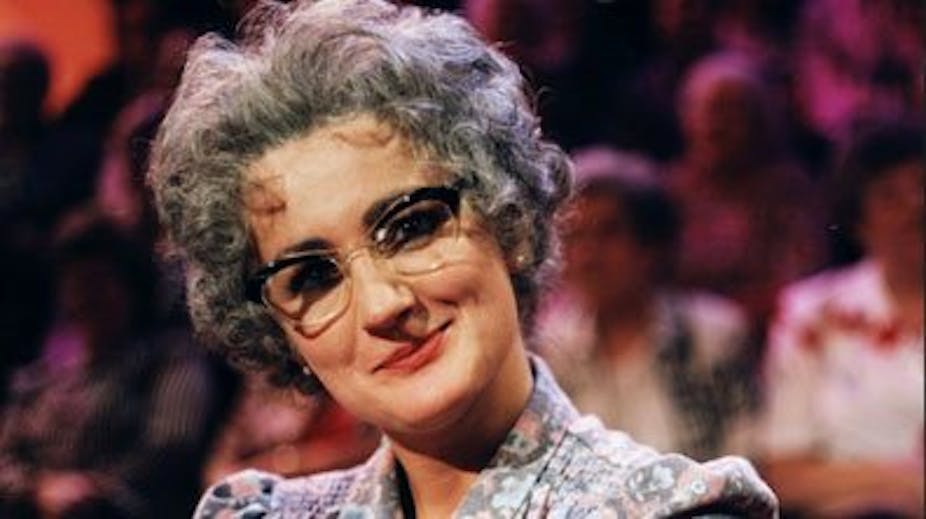“So, what first attracted you to the millionaire Paul Daniels?” Mrs Merton memorably asked Debbie McGee. This question is my nomination for simultaneously the most incisive, succinct, funny, and pomposity-puncturing question ever asked on TV – it is just a shame that it took a fictional character to ask the sort of clever question that is lacking in our normal political discourse.
Mrs Merton was of course, played and created by the comedian Caroline Aherne, who died on July 2. Her question to McGee achieved its humorous effect from deliberately presupposing its own conclusion. The poignant irony is that her death comes at a time when the UK Parliamentary Labour Party (PLP) is most in need of her sort of wit as it tries to reflect on the location of its soul. Instead, cast adrift in a resentful sea of thwarted self-entitlement, London-centric apparatchiks continue to simultaneously claim they need to connect more with working-class voters while they sneer at the uncouth voting habits of the provincials.
A key part of The Mrs Merton Show was the blue-rinse OAP brigade that formed her audience. A Mancunian rather than Greek chorus, they nevertheless provided the sounding board for a rare manifestation within mainstream media of a real sense of northern community. Subsequent Aherne creations, such as the Royle Family and Early Doors (she wrote and acted in both), continued to promote this value – it transformed the lazy tropes of lumpen proletariat couch potatoes or pub denizens into life-affirming depictions of working-class solidarity with a rib-ticklingly accurate ear for authentic dialogue that film director Mike Leigh could only dream of matching.
A whole class system separates the Cambridge Footlights notion of humour that permeates the BBC from Aherne’s comedic testimony to the fact it is both grim and funny “Up North” – and that these two qualities are inextricably linked in a way the privileged will never understand. The Royle Family’s punning title alludes to aristocracy’s mirror image – society’s hereditary underclass.
While popular outside of the north, closer to home the show’s reception had an additional element to enjoy. Northerners appreciated the return of the repressed, unusually; they could hear the familiar voices of those whose main form of media interaction normally consists of shouting at implacably unresponsive TVs and whose only thrones are toilet seats or sagging armchairs.
London luvvies, my arse!
The families of the northern hinterlands who Aherne inimitably embraced, rather than complacently dismissed, watch the media’s coverage of the internal machinations of the PLP with the same sort of detached curiosity with which they enjoy programmes about designing your own ecologically award-winning dream house in the countryside or how to cook perfect soufflés in an Aga. “The Westminster bubble” risks becoming a phrase whose true import is lost through blasé overuse.

In February 2010, Luciana Berger, the prospective Labour parliamentary candidate for Wavertree Liverpool was tested by the local newspaper, The Liverpool Echo, on her knowledge of Liverpool. Berger failed to answer correctly such locally esoteric questions as “who was Bill Shankly?” and “who sang ‘Ferry Across the Mersey’?” Although he never followed through with it, at the time, Ricky Tomlinson, the life-long Labour-supporting Liverpudlian actor who played Jim Royle threatened to run as an independent candidate using the slogan “Berger, my arse!”.
In the same year, the aptly named Tristram Hunt (erstwhile member of Cambridge Footlights) was selected as the Labour candidate for Stoke-on-Trent Central. Unlike Tomlinson, but with the same ultimate result, Gary Elsby, the secretary of the local party, did carry out his protest and stood as an independent candidate against Hunt in protest at the imposition of a silver spoon-carrying southerner with no prior links to Stoke.
That privilege safeguards privilege is a tautology that will fail to surprise anyone with even a cursory familiarity with the British establishment. What does shock, however, is the totally naturalised nature of the current incomprehension exhibited at the way so many in the north voted against the establishment and for Brexit. The importance of Aherne’s work stems from its countervailing force. Despite being as rare as hen’s teeth, a working-class woman in BBC comedy – and unlike talent like John Bishop who is only tolerated in the jester’s role of professional northerner – she offered a glimpse of an ignored world in which her characters refused to pay the standard fee of self-deprecating excess.
For Aherne, a “Barb” was much more than Jim Royle’s long-suffering wife – it was something upon which to hook the pompous and pierce through to the painful truth that love and social decency still flourish. And they flourish despite, not because of, the powers that be. Today, at a time when the media and political classes have conniptions about a mess they first caused and then ignored for so long, if Mrs Merton’s alter ego was still alive, I can envisage her innocently asking her guests: “So, Luciana and Tristram, what is it that first attracted you to the inner-city constituencies of Liverpool and Stoke?”

